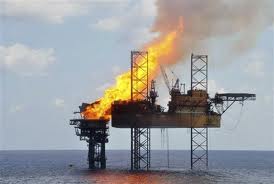The U.S. rig count continues to fall as production of offshore oil in U.S. waters has virtually stopped. While just last year 1,069 rigs were active, today the count is down to a mere 476, according to Baker Hughes. Fewer working rigs means less jobs and major repercussions for the economy as a whole.

This unprecedented downturn has been fueled, in large part, by production levels from other countries exceeding demand. For example, the Organization of the Petroleum Exporting Countries (OPEC – whose members include Algeria, Angola, Ecuador, Iran, Iraq, Kuwait, Libya, Nigeria, Qatar, Saudi Arabia, United Arab Emirates and Venezuela) are collectively producing 1.1 million barrels of oil per day more than they were just a year ago.
Will the Offshore Rig Count Improve Any Time Soon?
While the situation is complex, hope of recovery remains. First, Saudi Arabia is expected to join an oil output freeze in April 2016 which could help foster an agreement lowering overall production among big oil producing countries. Even a temporary freeze on this big of a platform could help decrease the current imbalance between supply and demand.
Second, while President Obama recently scuttled a proposal to issue drilling leases off the southeastern coast of the United States, the administration will offer 10 new leases for drilling in the Gulf of Mexico and off the Alaskan coast. That move came as part of a revised proposal from the Department of the Interior handling offshore fossil-fuel drilling from 2017 to 2022.
While the offshore oil and gas industry in the Gulf of Mexico has been flattened by economic forces, there is reason to be optimistic that work will pick back up – even if it is at snail’s pace.
The U.S. Rig Count: A Maritime Lawyer’s Perspective
As maritime accident lawyers, we see a bigger picture problem for the current offshore workers and companies dealing with the economic slow-down: safety. In relaying the facts involved in their respective incidents and injuries, we’ve seen at least seven new Jones Act clients report incidents that are directly attributable to offshore companies trying to manage the downturn by skimping on safety.
Whether it is rushing to complete a job or not having enough manpower to safely complete a task, these shortcuts can have huge ramifications on the well-being of the offshore worker. It is vital that drilling, supply, and exploration companies uphold standards required to provide a safe working environment regardless of a declining profit margin.
If you believe you have been a victim of shortcuts or otherwise unsafe operations and have sustained an injury as a result, call 1-888-603-3636 or click here for a free consultation.